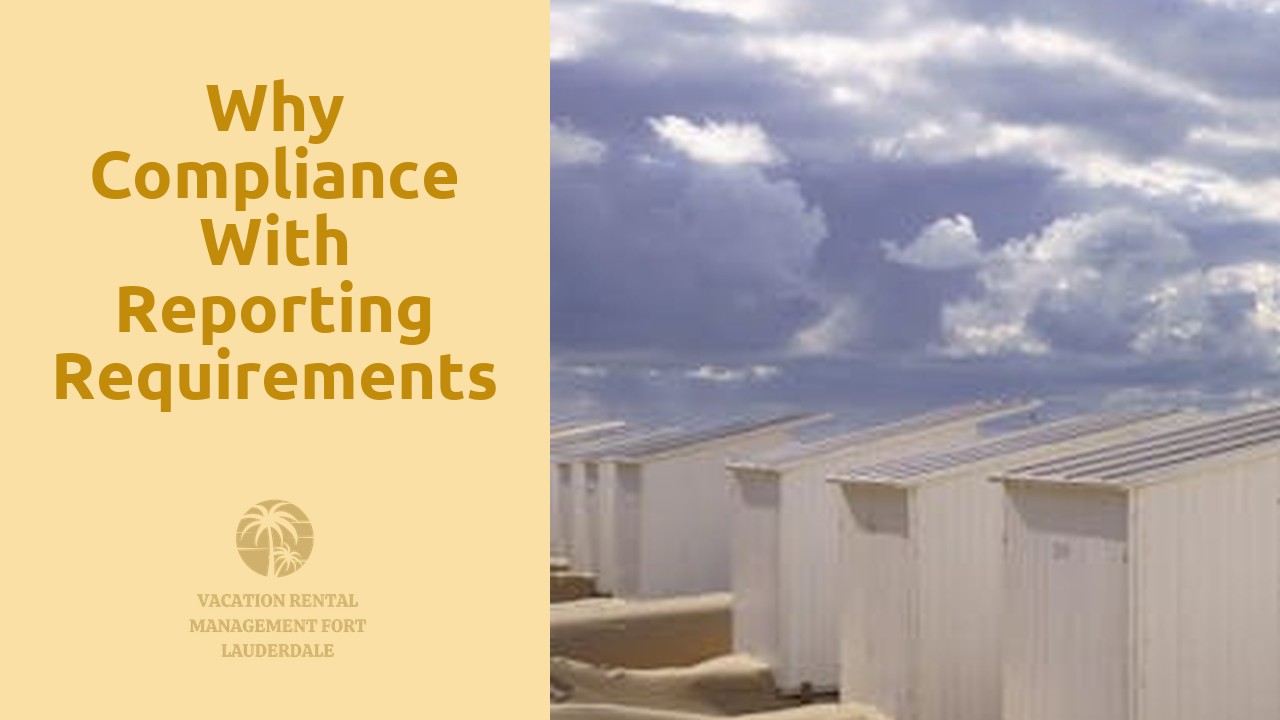
Why Compliance with Reporting Requirements is Important for Vacation Rental Management
Table Of Contents
Best Practices for Ensuring Compliance in Vacation Rental Reporting
For vacation rental management to run smoothly and efficiently, compliance with reporting requirements is crucial. One of the best practices for ensuring this compliance is to establish clear and concise reporting procedures that are easily understood by all staff members involved in the process. Providing training and education on these procedures is essential to ensure that everyone is aware of their responsibilities when it comes to reporting rental activities and financial transactions accurately.
Another important practice is to implement regular audits and monitoring to assess compliance levels and identify any potential issues or discrepancies. By conducting internal checks routinely, property managers can maintain the integrity of their reporting processes and address any errors promptly. This proactive approach not only helps in maintaining accuracy but also instills a culture of accountability within the vacation rental management team.
Training and Education for Staff on Reporting Procedures
Effective training and education for staff on reporting procedures is essential to ensure compliance in vacation rental management. Providing comprehensive instruction on the reporting requirements, deadlines, and formats empowers employees to accurately fulfill their responsibilities. It is crucial to offer ongoing training sessions to keep staff updated on any changes in regulations or reporting protocols, fostering a culture of continuous learning and improvement within the organization.
By investing in the education of staff members, vacation rental managers can mitigate the risk of non-compliance and potential penalties. Clear communication of reporting expectations and procedures helps employees understand the importance of accurate and timely reporting. Offering guidance on how to overcome common reporting challenges and providing support when needed enables staff to confidently navigate the reporting process and contribute to the overall success of the vacation rental business.
The Role of Technology in Streamlining Reporting Processes for Vacation Rentals
Utilizing technology plays a crucial role in simplifying and enhancing reporting processes for vacation rentals. Implementing software solutions tailored to the needs of property management can significantly streamline the collection and analysis of financial data, reservations, and guest information. Automated reporting tools can generate detailed reports efficiently, saving time and reducing the margin for errors in manual data entry.
By integrating technology into reporting processes, vacation rental managers can access real-time data insights and performance metrics, enabling them to make informed decisions quickly. Cloud-based platforms provide the flexibility to access reporting tools remotely, allowing managers to stay up-to-date on property performance even when they are off-site. Additionally, technology can help in ensuring compliance with local regulations and tax requirements by maintaining accurate records and integrating legal updates into reporting systems seamlessly.
Automating Reporting Tasks for Enhanced Accuracy and Timeliness
Automation plays a pivotal role in enhancing the accuracy and timeliness of reporting tasks in vacation rental management. By leveraging technology to automate routine reporting processes, property managers can reduce the likelihood of human error and ensure that data is consistently entered and updated in a timely manner. This not only minimizes the risk of inaccuracies but also saves valuable time that can be better allocated to other critical aspects of rental property oversight.
Moreover, automated reporting tasks enable vacation rental managers to generate real-time insights and analytics vital for making informed business decisions. Through streamlined data collection and reporting, property owners can identify trends, track performance metrics, and assess the financial health of their rentals efficiently. By embracing automation in reporting, vacation rental managers can not only uphold compliance requirements but also pave the way for improved operational efficiency and strategic planning.
Monitoring and Auditing Compliance in Vacation Rental Management
Monitoring and auditing compliance in vacation rental management is essential to uphold industry standards and regulations. By conducting regular internal checks, property managers can ensure the accuracy and reliability of their reporting processes. These checks help identify any discrepancies or errors in financial records, ensuring that the information provided to relevant authorities is correct and up-to-date. Additionally, internal audits can uncover potential weaknesses in the reporting system, allowing for prompt corrective actions to be taken to prevent future non-compliance issues.
In addition to internal checks, external audits can provide an unbiased evaluation of a vacation rental company's reporting practices. Hiring a third-party auditing firm can offer valuable insights into the effectiveness of the reporting procedures and internal controls in place. External audits can also help identify any areas of improvement and provide recommendations for enhancing compliance measures. Overall, monitoring and auditing compliance are critical components of effective vacation rental management, ensuring transparency, accuracy, and integrity in reporting practices.
Conducting Regular Internal Checks to Ensure Reporting Accuracy
Regular internal checks are essential to ensure the accuracy and integrity of reporting processes within vacation rental management. By conducting thorough and consistent reviews of financial records, occupancy reports, and other pertinent documentation, property managers can identify any discrepancies or errors early on. This proactive approach not only helps maintain compliance with reporting requirements but also fosters transparency and trust with stakeholders.
Through internal checks, vacation rental management teams can uncover potential issues such as inconsistencies in revenue calculations, inaccuracies in guest check-ins and check-outs, or missing documentation for maintenance and cleaning services. By addressing these discrepancies promptly, managers can uphold the reputation of the property and avoid any possible legal or financial repercussions. Moreover, regular internal audits demonstrate a commitment to accountability and professionalism, setting a high standard for reporting accuracy across the board.
Related Links
The History of Vacation Rental Management in Fort LauderdaleWhy Effective Owner Communication is Essential in Vacation Rental Management
10 Essential Tips for Vacation Rental Property Management
Review of Vacation Rental Management Software Solutions
The Ultimate Roundup of Vacation Rental Management Tools
What to Consider for Legal and Compliance in Vacation Rental Management